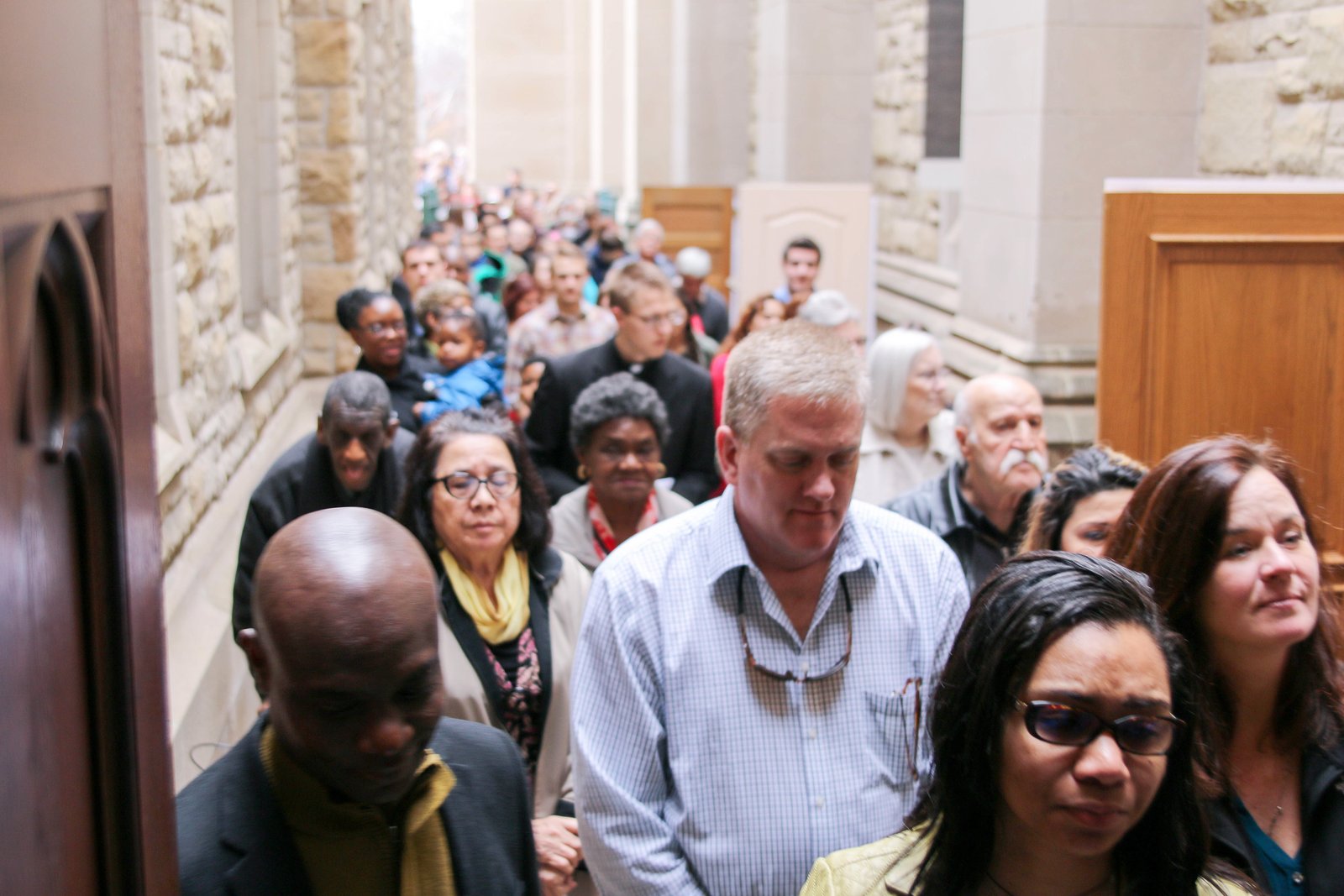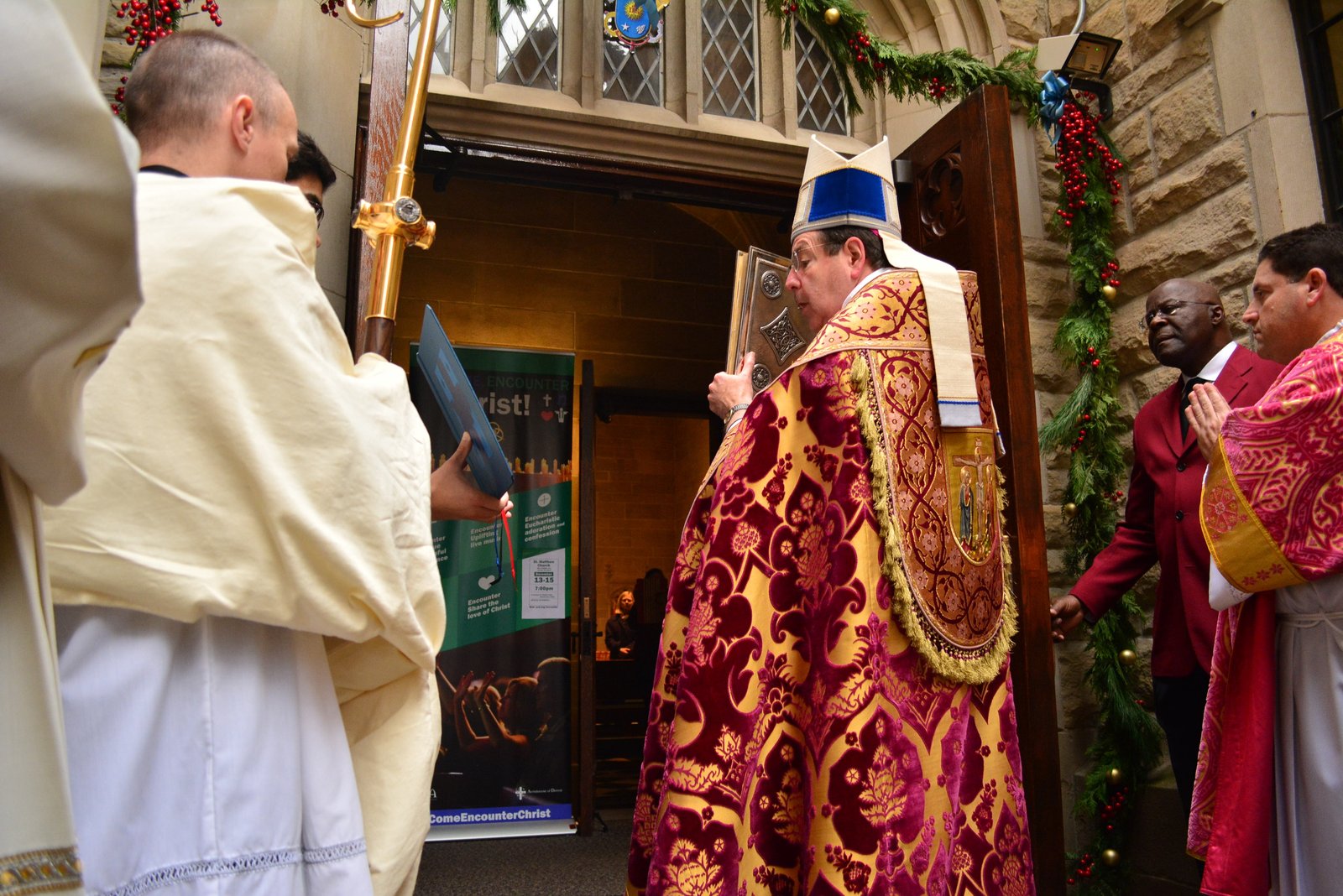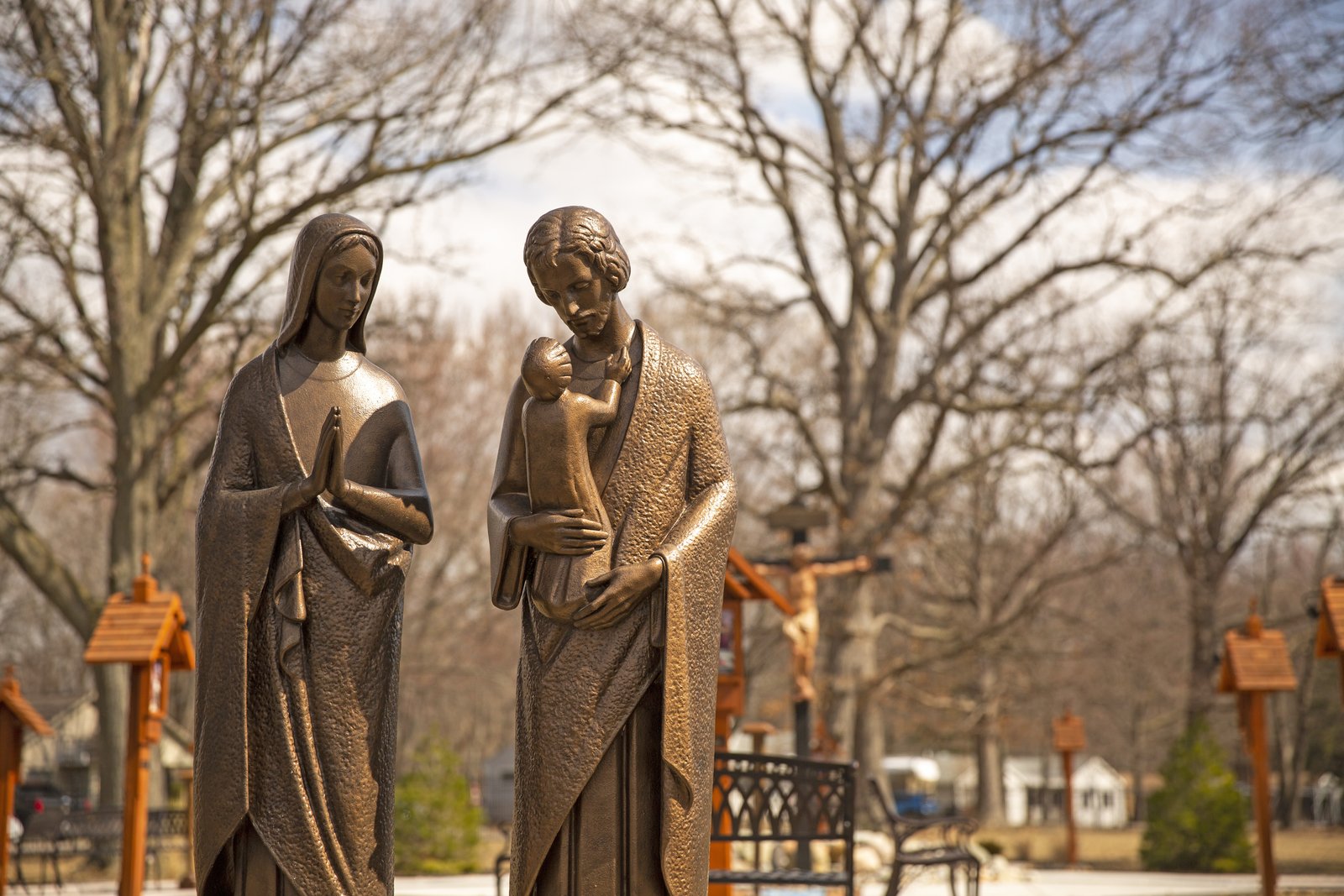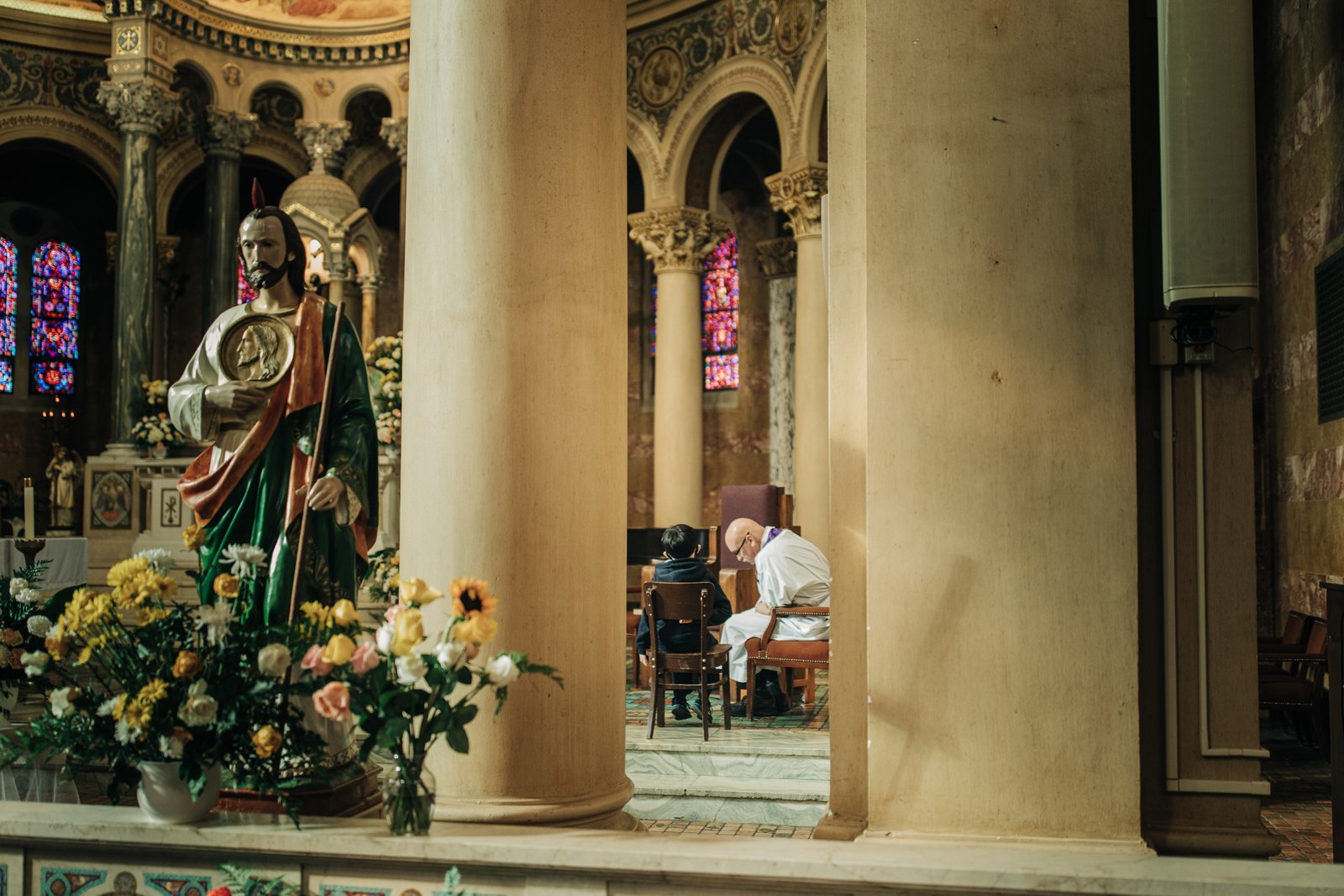Faithful invited to attend the opening Mass of the Holy Year of Hope on Dec. 29 at the Cathedral of the Most Blessed Sacrament
DETROIT — For more than 700 years, the Church’s jubilees have marked “the passage of years and centuries” and “served as holy times in human history when we pause, pray, seek the Lord’s pardon, and praise Him for His merciful grace,” Detroit Archbishop Allen H. Vigneron said.
The year 2025 will be such a year for the universal Catholic Church.
On Dec. 24, Pope Francis will open the Holy Door at St. Peter’s Basilica in Rome, inviting pilgrims from around the world to experience God’s mercy and ushering in the Holy Year 2025 — a quarter-century celebration of grace, forgiveness and renewal — centered on the theme, “Pilgrims of Hope.”
Archbishop Vigneron will celebrate the solemn opening of the jubilee in the Archdiocese of Detroit during an 11 a.m. Mass Sunday, Dec. 29, at the Cathedral of the Most Blessed Sacrament in Detroit.
The Church celebrates ordinary jubilees every 25 years, although extraordinary jubilees are sometimes proclaimed in the interim. The last extraordinary jubilee was in 2016, when Pope Francis proclaimed a “Year of Mercy,” and the next one is likely to take place in 2033, when the Church marks the 2,000th anniversary of Jesus Christ’s death and resurrection.

The last ordinary jubilee — although it was anything but ordinary — took place in 2000, when Pope St. John Paul II led the Church into the new millennium during the Great Jubilee.
The tradition of jubilee years goes back to biblical times, when “God instructed the children of Israel through Moses to count every fiftieth year as sacred (Lev 25:10),” Archbishop Vigneron explained in a new pastoral note, “Our Pilgrimage of Hope,” released Nov. 30 in preparation for the jubilee year.
“The biblical jubilee year was a sacred time in which the Israelites, freed from slavery, would proclaim liberty to captives and forgiveness to debtors; people returned to family and homeland as a way of recalling that the simplest bonds in life are often the most essential; and people renewed their trust in God by letting the land lay fallow and relying solely on what God provided (see Lev 25:11-13; 20-22),” Archbishop Vigneron wrote.
In 1470, Pope Paul II established the practice of celebrating jubilees every 25 years, instead of 50, in order to allow more people to experience a Holy Year within their lifetimes.
Jubilee years in the Church are characterized by their extraordinary focus on God’s mercy, especially through the expanded availability of the sacrament of confession and the offering of indulgences, Archbishop Vigneron said.
Jubilees also frequently take on the character of a pilgrimage — either physical or spiritual — offering opportunities for the faithful to undertake a journey rooted in faith, he added.
“By making our way through the busy world, pilgrim journeys help us to appreciate the beauty of creation, recall the need for silence and recollection, form friendships with fellow travelers, and seek Christ, who is the way (John 14:6) and the gateway (John 10:9) to eternal life, in every encounter and situation.
Often, these pilgrimages include passing through a Holy Door — a special door opened by the pope or bishop in recognition of the jubilee — such as the Holy Door at the Cathedral of the Most Blessed Sacrament during the Year of Mercy in 2016.
While the Holy Doors in Rome will be the only such doors throughout the world during Jubilee 2025, Detroit-area pilgrims won’t have to travel to Rome to experience the jubilee’s graces, Archbishop Vigneron said.

“(I)n the Archdiocese of Detroit, throughout the coming Jubilee Year 2025, certain churches will serve as official sites of pilgrimage for the faithful in Southeast Michigan to visit,” Archbishop Vigneron said. “At these archdiocesan pilgrimage sites, the faithful will be able to pray the official prayer for Jubilee Year 2025 and unite themselves spiritually to all who will journey as pilgrims to Rome physically.
“Of course, if anyone from Detroit has travel plans to be in Rome during the jubilee year, you should make a visit to one of Rome’s four major basilicas part of your itinerary,” the archbishop added.
The 12 pilgrimage sites in the Archdiocese of Detroit will include:
- Basilica of Ste. Anne, Detroit
- Blessed Solanus Casey Center, Detroit
- Cathedral of the Most Blessed Sacrament, Detroit
- Holy Sepulchre Cemetery, Southfield
- National Shrine of the Little Flower Basilica, Royal Oak
- Our Lady of Fatima Shrine, Riverview
- Our Lady of Hope Cemetery, Brownstown Township
- Presentation of the Blessed Virgin Mary Chapel (Madonna University), Livonia
- Shrine of Jesus the Divine Mercy, Clinton Township
- Shrine of St. John Paul II, Orchard Lake
- St. Joseph Shrine, Detroit
- Shrine of the Immaculate Heart of Mary, Pontiac
Pilgrims can receive a plenary indulgence by making a pilgrimage to any of the sites during the jubilee year, as well as by performing certain works of devotion, mercy or penance, Archbishop Vigneron said.
The normal conditions for receiving an indulgence — a detachment from sin, sacramental confession, reception of Holy Communion and prayers for the intentions of the pope — apply.

Although Jubilee 2025 will not include the opening of a Holy Door in the Archdiocese of Detroit, Archbishop Vigneron nevertheless encouraged pilgrims “to seek out a certain door in your parish church that can be a threshold for new hope.”
“That particular door is, of course, the door to the confessional,” the archbishop said. “As pilgrims of hope in this coming jubilee year, I pray that all Catholics will find hope by going or returning to the sacrament of penance. Confession is one of the greatest acts of hope a Catholic can make!
“God is always ready to forgive,” he continued. “Ask, seek, knock, and the door of his mercy will be opened to you (see Matt 7:7-8; Luke 11:9-10)! As I wrote in Unleash the Gospel, ‘[r]econciliation is an open doorway for return. No sin is unforgiveable, and through the sacrament the Father’s embrace and a fresh start await’ you.”
The offering of indulgences during the jubilee year is another expression of mercy and hope, granting opportunities not just to be forgiven, but completely cleansed from sin, the archbishop added.
“Because sin is a preference for self-love, it leaves behind an unhealthy attachment to (or a disordered love for) earthly things, even after it is forgiven. The Catechism teaches that these earthly attachments can be purified either here on earth or after death in Purgatory,” Archbishop Vigneron said. “God’s abundant mercy is such that he wants to reorder our disordered desires even now. Thus, an indulgence is the remission of the temporal punishment (the effects of sin that linger in us) caused by sin. An indulgence frees us from earthly attachments by means of heavenly remedies, such as prayers, pilgrimages, devotions, and works of mercy.”
Indulgences can be obtained either for one’s own soul — after sacramental confession is made — or the souls of those in purgatory.

Archbishop Vigneron added it’s providential that Jubilee 2025 takes place during the mission year of the U.S. Church’s National Eucharistic Revival, since confession and penance naturally beckon one to become spiritually and sacramentally united to Christ in the Eucharist.
“The focus on penance and indulgences throughout the year should help the faithful to understand the communal nature of our jubilee celebrations: penance and indulgences heal the wounds of sin that affect all God’s people; reception of the Holy Eucharist brings us into communion with God and one another, forming us into the Body of Christ; even prayers said in Detroit for the Holy Father in Rome unite us spiritually to him and to the pilgrim Church throughout the world,” Archbishop Vigneron said.
The archbishop encouraged Catholics who are able to do so to join him Dec. 29 for the opening Mass of the jubilee at Detroit’s cathedral. The Holy Year will conclude on Jan. 6, 2026, the feast of the Epiphany.
Reflecting on the Jubilee Year’s theme of pilgrimage and doorways, the archbishop pointed to Detroit’s own homegrown saint as a powerful icon and intercessor of the Holy Year’s graces.
“As we approach the beginning of this sacred time, I recall the example of Blessed Solanus Casey, the porter of St. Bonaventure monastery, who simply opened the door to so many who sought God’s mercy with humility and hope,” Archbishop Vigneron wrote. “Inspired by Blessed Solanus, I ‘thank God ahead of time’ for the mercy that the Lord will extend, for the hope that this new year will foster, and for the joy this jubilee year will bring.”
Jubilee Year of Hope 2025
To learn more about the celebration of the Jubilee Year 2025: "Pilgrims of Hope" in the Archdiocese of Detroit, including a list of conditions for receiving an indulgence, visit aod.org/jubilee.
The Jubilee Prayer
Father in heaven,
may the faith you have given us
in your son, Jesus Christ, our brother,
and the flame of charity enkindled
in our hearts by the Holy Spirit,
reawaken in us the blessed hope
for the coming of your Kingdom.
May your grace transform us
into tireless cultivators of the seeds of the Gospel.
May those seeds transform from within both humanity and the whole cosmos
in the sure expectation
of a new heaven and a new earth,
when, with the powers of Evil vanquished,
your glory will shine eternally.
May the grace of the Jubilee
reawaken in us, Pilgrims of Hope,
a yearning for the treasures of heaven.
May that same grace spread
the joy and peace of our Redeemer
throughout the earth.
To you our God, eternally blessed,
be glory and praise for ever.
Amen
Copy Permalink
jubilee 2025











